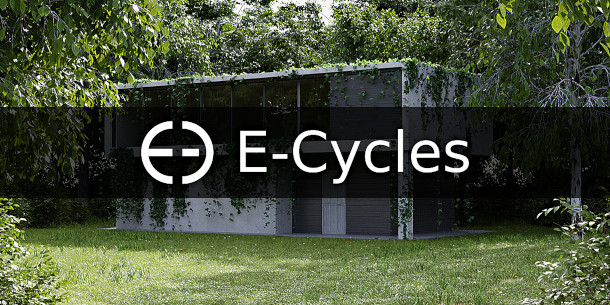Mathieu Menuet unveils E-Cycles 2020 and RTX 2020

Developer Mathieu Menuet has unveiled E-Cycles 2020 and E-Cycles RTX 2020, the next major releases of his optimised version of Blender’s Cycles render engine.
Menuet claims that E-Cycles RTX 2020, which is currently available in preview, is “up to 4x faster” when rendering on Nvidia’s RTX GPUs than Cycles’ native OptiX backend.
The release also makes E-Cycles RTX compatible with older Nvidia GeForce GTX cards, and introduces support for viewport denoising via the OptiX denoiser.
Speed up Blender renders when rendering on the GPU in Cycles
First released last year, E-Cycles is a fork of Blender that reworks the Cycles render engine.
Menuet doesn’t go into detail about the differences in E-Cycles’ marketing material, but cites code changes “for efficient memory access and better usage of the massive core count of GPUs”.
The optimisations are intended to speed up GPU rendering: although Menuet says that E-Cycles can also accelerate CPU renders by “around 20%“, his main focus is rendering via Nvidia’s CUDA and OptiX APIs.
The resulting speed boost varies from GPU to GPU, but Menuet says that in the current stable build, users can expect “up to 2.5x faster path tracing with the same image quality”.
The software has been used in production on a range of commercials and architectural visualisation projects: you can see examples in the thread on Blender Artists linked at the foot of the story.
Now available in two editions, for rendering via CUDA only, or via CUDA or OptiX
Since we originally wrote about E-Cycles, Menuet has split the product into two main editions. The standard version accelerates renders using Cycles’ original CUDA backend, supported by most recent Nvidia GPUs.
The newer RTX edition also accelerates renders via the OptiX backend introduced in Blender 2.81, which can take advantage of the dedicated ray tracing cores in Nvidia’s GeForce, Titan and Quadro RTX GPUs.
Both editions have had regular updates – you can see a list here – with changes including improvements to texture baking and render denosing, and support for out-of-core rendering in the RTX edition.
New in the 2020 releases: faster rendering on RTX GPUs, support for older GeForce GTX cards
To that, E-Cycles 2020 and RTX 2020 will add support for the new features added to Blender this year.
Test builds are available based on Blender 2.82 – currently in beta, and due for release in February – with support for the mantaflow fluid simulation framework and UDIM UV format.
The releases also further accelerate rendering, particularly on RTX cards.
Menuet claims that E-Cycles RTX 2020 offers “up to 4x faster rendering” than the native Optix backend when using the software’s ‘Fast’ render profile: by default, the improvement is smaller, though still significant.
Menuet has also just released a separate test build of E-Cycles 2020 RTX based on Blender 2.83 – currently in alpha – adding support for viewport denoising via OptiX.
The release also introduces experimental support for older GeForce GTX cards in E-Cycles RTX. GPUs supported include the GeForce GTX 980 Ti, and the GeForce GTX 1060 to the GeForce GTX 1080 Ti.
Running E-Cycles RTX on an older GPU doesn’t consistently improve render speed over rendering via CUDA in the standard edition of E-Cycles, but it should accelerate scene pre-processing and denoising.
Support for older Nvidia GPUs should also follow shortly in the Blender 2.82 build of E-Cycles RTX 2020.
System requirements and pricing
E-Cycles is available for Windows or Linux via a GPL licence, with source code on request. The stable 2019 editions are based on Blender 2.79, 2.80 and 2.81a. The 2020 editions are based on Blender 2.82 and 2.83.
The pricing is pretty complex, with a range of different product bundles and legacy editions available, and prices quoted in US dollars on the official sales site, Blender Market, and in Euros on Gumroad.
However, the 2020 editions are available at a discount until Blender 2.82 officially ships: E-Cycles 2020 currently costs €99 (around $110) and E-Cycles RTX 2020 costs €249 ($275), including one year’s updates.
Read an overview of E-Cycles for Blender on the software’s product page on Blender Market
Read more about updates to E-Cycles in the product thread on Blender Artists
